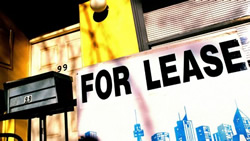Quiana Darden* says it is possible to rent almost anything these days, but what are the pros and cons of renting against buying outright?
 As a concept, renting is nothing new, but recently there seems to have been an explosion in consumers’ ability to rent or lease just about anything, from phones to furniture to sports equipment.
As a concept, renting is nothing new, but recently there seems to have been an explosion in consumers’ ability to rent or lease just about anything, from phones to furniture to sports equipment.
Ultimately, whether you buy outright, finance, or lease an item, you want to choose the option that works best for you and your life.
So when does it make sense to rent something instead of buying it outright?
Before diving too deeply into the pros and cons of renting, let’s make sure we have a common understanding of the differences between all of these terms.
Buy outright:
When you pay for an item in full with cash, cheque, or debit card, you own it.
You won’t make a payment on it or pay interest. It’s yours unless you decide to get rid of it.
Finance:
When you finance a purchase in full, it’s yours, but you continue to make payments on the item until you owe it outright.
If it is financed as a secured loan, it can be repossessed if you fail to make payments on time, such as with a home or vehicle.
Rent or lease:
When you rent, you agree to make payments to gain access to the item for a period, and at the end of the lease, you will return it to the company you made the agreement with.
There are some inherent advantages and disadvantages of both renting and buying. Here are some pros and cons of renting.
When you rent, whether it’s a home, car, purse, or sports equipment, you have flexibility.
If you want to rent a home in one city this year, another city the next year and another the following year, you can.
If you want to have a different designer purse each month, you can.
If you want to upgrade to the newest iPhone whenever it releases, you can.
Renting also gives you the ability to get what you want without having to wait.
For example, if you want a $1,500 purse and you don’t want to save for eight months to be able to buy it outright, you can rent it for $125 a month on websites like Bag Borrow or Steal or Rent the Runway.
If you want to experience living in one of the top neighbourhoods in town, you can rent a home there instead of saving for a down-payment and qualifying for a mortgage.
When we put less focus on ownership, it inherently means that we are agreeing to make more payments over longer periods to rent what we want or to go without the items altogether.
This is something to factor into your budget because if you rent a lot, you could find yourself with monthly payments for your car, home, phone, purse, furniture — the list goes on.
Still, if you were to compare how much you’re paying each month when renting versus how long it would take you to save and buy all of the items outright, you might find that renting gives you more access for less.
When you rent instead of buy, you don’t have to take the full financial hit in the event that the item decreases in value.
For example, when the value of your vehicle decreases, it won’t impact you financially because you don’t have to worry about trading it in or selling it down the road.
On the other hand, renting and leasing an item also robs you of any financial gain you could experience if the object increases in value as time goes by.
This is most prevalent for homes, designer items, artwork, quality jewellery, and the like.
While the appreciation isn’t guaranteed, purchasing gives you the option to reap the benefit if it does increase in value.
Now the question of the hour: When should you rent an item versus buy it outright?
Again, there is no hard and fast rule for when you should do either — it really depends on what item you’re thinking about buying.
The criteria for deciding whether or not to rent or buy a home will be starkly different from deciding whether you should rent a designer dress.
If you’re already swimming in debt, it might not be the best idea to save to make a purchase.
Instead, you could rent it and put the other money toward paying off your debt.
If you just want the item for a short period, like a special occasion or extenuating circumstances in your life, renting it might be better than making an investment in purchasing it.
If this is an everyday use item, you could go either way, depending on what it is.
If you see this purchase as a potential investment, you might want to consider buying instead of renting.
If it would take you an extremely long time to be able to purchase it, you might want to consider renting it until you can buy it.
If you place a lot of value on the item, it might be worth it to purchase instead of rent it.
*Quiana Dardenis a content marketing writer and founder of The Write Choice, a content marketing firm. She can be contacted at quianadarden.com.
This article first appeared at thefinancialdiet.com.











